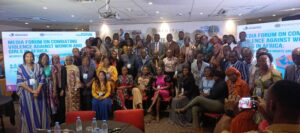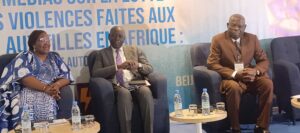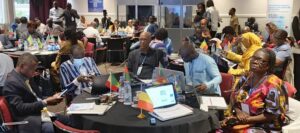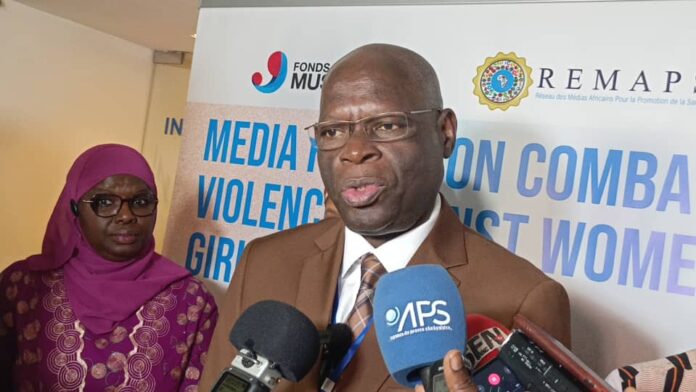Every ten minutes, a woman is killed by an intimate partner or family member.
This is contained in the report “Femicides in 2023: Global Estimates of Intimate Partner/Family Member Femicides” by UN Women and the United Nations Office on Drugs and Crime (UNODC).
To help change this narrative and advocate for the rights of women, a continental Media forum on combating violence against women and girls in Africa has opened in Senegal.
The focus is on respecting Human Rights and empowering girls and women.

The forum, organized by The Africa Media Network for Health & Environment Promotion, REMAPSEN with support from UN Women and Fonds Français Muskoka, seeks to address one of the most pressing human rights issues – violence against women and girls.
Inaugurated as part of the global 16 Days of Activism Against Gender-Based Violence, the event has brought together 65 participants, including media practitioners, advocates, and policymakers, to explore the role of media in amplifying women’s rights and developing concrete policies to counter gender-based violence.
In his opening remarks, REMAPSEN President Bamba Youssouf underscored the urgency of the forum’s mission.

He emphasized the media’s critical role in pushing back against violence, ensuring the empowerment of women, and strengthening communication on human rights.
“When borders are open, they must be open to human rights,” he declared, urging participants to use their platforms to advocate for care and dignity for women across Africa.
Deputy Regional Director of UN Women for West and Central Africa (WCARO), Mireille Kamitatu, highlighted the disturbing realities women face “Every ten minutes, a woman is killed by an intimate partner”.
Thus, 60 percent of female homicides are committed by someone they care about; she noted, calling for immediate and bold action.
“Violence against women is a violation of human rights,” Madame Kamitatu asserted. She believes “the media is uniquely placed to expose these realities, champion survivors, and ensure an inclusive and sustainable approach to combating violence.”
She further pointed out that no country in Africa has yet eliminated violence against women, citing persistent practices such as child marriage and female genital mutilation.
“We need transformative political will and determined actions to close the gaps in women’s rights and end impunity,” Madame Kamitatu said, stressing the need for legislation and media-driven advocacy to dismantle harmful societal norms.
On the Role of the Media, the forum aims to rally media professionals to become champions of women’s rights.
Participants will deliberate on strategies to expose gender-based violence, amplify survivor stories, and challenge mediums that normalize abuse.

Through collaborative efforts, the forum hopes to craft actionable policies that promote a fair and equitable approach to women’s rights.
Oumar Sanab, a technical director at the ministry, represented Senegal’s Minister of Family and Solidarity, Madame Maimouna Dieye.
Sanab reaffirmed the country’s commitment to addressing inequality and violence against women.
He highlighted the impacts of physical, psychological, and economic violence, stressing that these issues hinder Africa’s broader development goals.
“Transforming mentalities is key,” he said. “We must denounce inequality and amplify the voices of policies that promote women’s rights. This is not just a fight for women; it is a fight for the future of our continent,” he added.
The forum’s deliberations promise to chart a new course for addressing gender-based violence in Africa.
By fostering collaboration between the media, policymakers, and advocacy groups, it also aims to ensure that women and girls are no longer silenced but empowered to thrive in societies that respect their dignity and rights.
As the sessions unfold, the hope is that this gathering in Dakar will ignite bold, transformative action for women and human rights.

